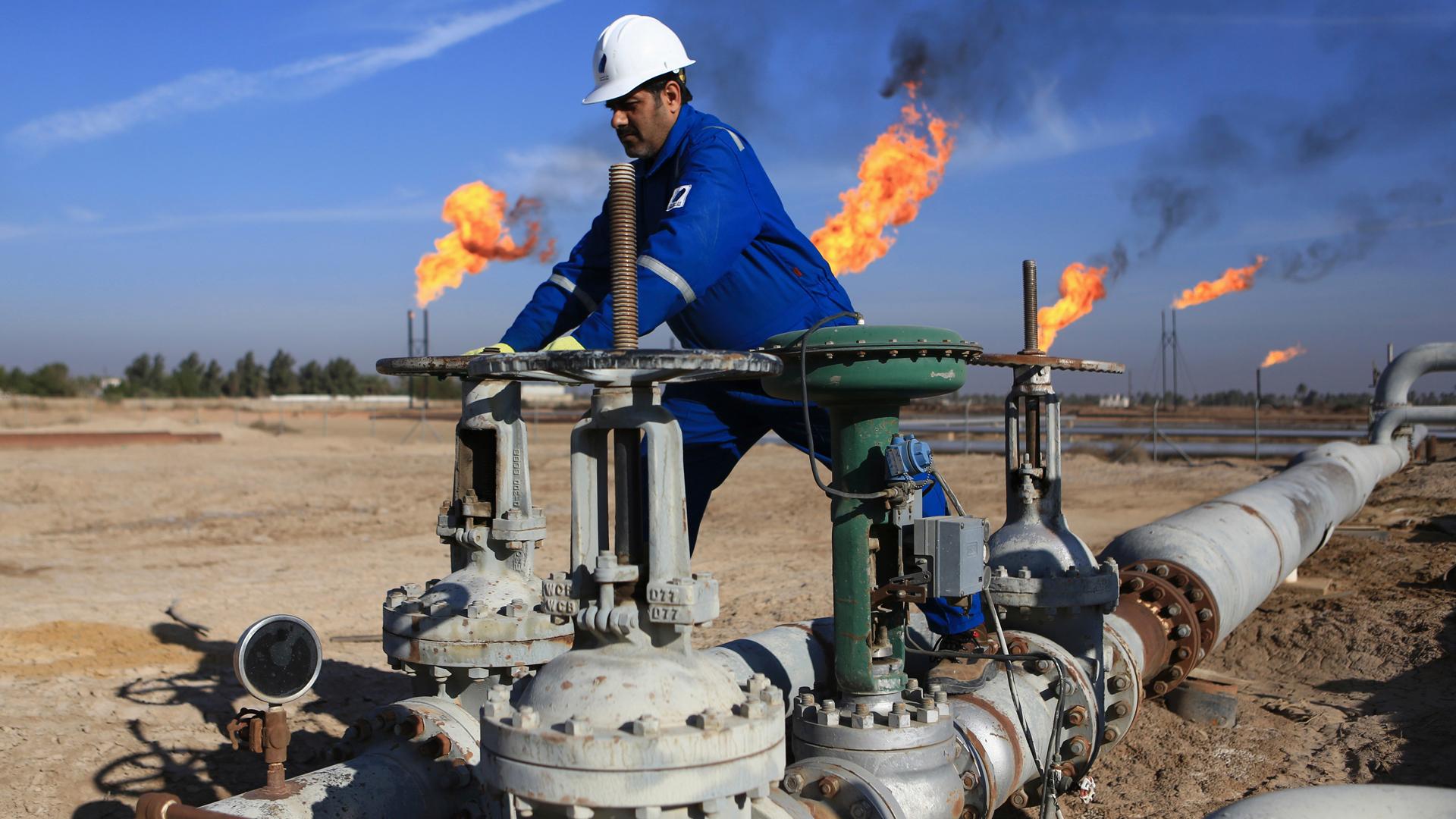Oil-rich but powerless: Who can solve Iraq's electricity crisis? | Iraq

This week, German conglomerate Siemens announced that it's in discussions to help rebuild and boost Iraq's power generation infrastructure.
Rebuilding efforts in Iraq have been slow and it's estimated that $100bn is needed for reconstruction in the next 10 years.
Since the defeat of the Islamic State of Iraq and the Levant (ISIL, also known as ISIS) last year there have been widespread protests about a breakdown in public services.
Earlier this month, the southern city of Basra experienced violent protests over poor public services and unemployment. Anger flared after the hospitalisation of 30,000 people who had drunk polluted water.
Residents in the oil-rich region are struggling with electricity shortages, corruption among officials and unemployment, as reported by Al Jazeera.
After May elections, Iraq is in the process of forming a government.
So, what are the challenges facing the new Iraqi government? Why can't one of the world's top oil producers keep the power on? Are Siemens power stations the solution to Iraq's electricity crisis? And what will it take to rebuild Iraq's power grid?
"The electricity crisis in Iraq is not an issue that can be resolved overnight," says Shwan Zulal of Carduchi Consulting. "The power generation and demand are completely at odds with each other, especially at peak time ... in the month of July there is almost 50 percent of shortages in electricity generation."
Zulal explains that one of the main issues is "the fact that the business model for the electricity sector in Iraq doesn't work ... because it's government-owned. There's not enough investment coming into the sector. And second, the government doesn't really collect enough from the consumers."
Corruption is eating the country alive.
While $40bn has been allocated to Iraq's power sector over the past 15 years, "corruption is eating the country alive," says Zulal. "Basra is a very good example ... You have this monopoly from the private local small power generator - very polluting, very noisy in the neighbourhood, which charge extortionate amounts of money."
He says the Siemens announcement to bring electricity for 300,000 Iraqis "is a very welcome news, but the problem is you can increase power generation but the demand will also increase because the consumer doesn't take responsibility. If you're not paying your bills, you wouldn't be keeping tabs on how much electricity you use. So the more you increase generation, the consumption goes up, and given the Iraqi population is growing at a fast rate, this catch-up game never works."
According to Zulal, the country's high oil wealth potential interests investors "however, when investors go to Iraq and look at the regulatory environment and how sluggish the bureaucracy is, most investors at the end give up. There are good ideas and projects, such as solar [energy], which could resolve a lot of issues - especially in the south. There's plenty of sun in Iraq and the peak demand is the summer months in the afternoon when the sun is blazing. So the sun can easily be converted to power air conditioning in Iraq."
Also on this episode of Counting the Cost:
Colombia coffee: Coffee producers are calling on leading high street companies like Starbucks and Nestle to subsidise farmers who are struggling as prices hit 12-year lows. Speculators, overproduction and the power of multinationals are being blamed for the drop in farmers' incomes. Alessandro Rampietti reports from Colombia's coffee-growing region of Rovira where the situation for most farmers is desperate.
Jose Sette, from the International Coffee Organization, estimates the "total revenues from coffee all over the world per year are around more than $200bn a year. Of that, maybe $16bn - around 8 percent reaches the farmer. In addition, the industry does already invest in some sustainability initiatives, and that we estimate to be around $350m a year... the industry needs to up their game and invest a lot more in the sustainability of farmers, which are the base of their business."
EU-Iran relations: US President Donald Trump's second round of Iran sanctions targeting oil exports are due to kick in in November. But the EU is fighting back with a new measure to keep trade with Iran open, with a "special purpose vehicle." It's effectively a third-party institution that would handle transactions between Iran and companies trading with it, as Shihab Rattansi reports from Washington, DC.
Google turns 20: Google is celebrating its 20th anniversary. What began as a simple search engine is now a technology giant, which has revolutionised the world and the way we do things, as Rob Reynolds reports from Mountain View, California.
Elon Musk fraud: The Securities and Exchange Commission (SEC) alleges Tesla CEO Elon Musk has committed securities fraud when he recently tweeted about privatisation plans. The agency's complaint is the first fraud case involving the use of social media by the CEO of a public company. In a statement issued by Tesla, Musk called the SEC action unjustified.
Argentina IMF: Argentina is battling a budget deficit, an economic crisis and a collapsing currency. To help shore up the country's finances, the IMF increased a previous bailout package to $57bn, the biggest-ever loan in the history of the International Monetary Fund. The loan comes with stringent conditions, including a commitment to a zero deficit for 2019.